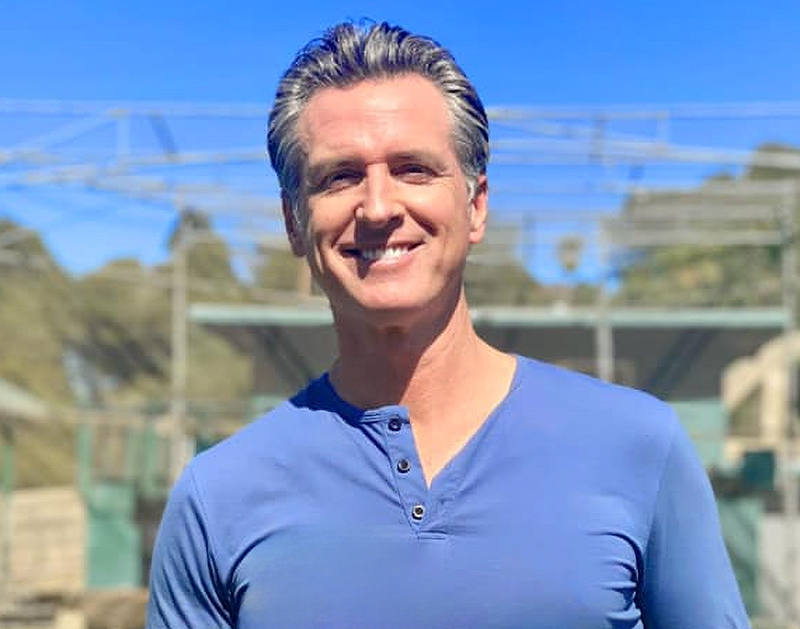Florida Trans Health Restrictions Unconstitutional, Judge Rules
Federal Judge Robert Hinkle found that restrictions on gender-affirming care were motivated by "anti-transgender animus."

A federal judge struck down several administrative rules and part of a law placing restrictions on access to gender-affirming care for both minors and adults, declaring them to be unconstitutional.
On Tuesday, June 11, U.S. District Judge Robert Hinkle, of the U.S. District Court for the Northern District of Florida, issued an order permanently blocking Florida state officials from enforcing a ban on puberty blockers and hormone therapy for transgender youth.
Florida is currently one of 25 states with such restrictions in place.
Hinkle’s ruling also blocks Florida officials from enforcing rules approved by the Florida Board of Medicine and Board of Osteopathic Medicine in order to comply with the law.
Those rules not only bar youth from accessing gender-affirming treatments, but imposed the first-of-their-kind restrictions to make it more difficult for transgender adults in the state to access gender-affirming care.
Among those restrictions were that adult patients could only see a doctor in person before receiving any kind of gender-affirming treatment, including regular prescription renewals. That limited the number of medical professionals available to transgender adults.
Additionally, adults had to sign “informed consent” forms in the presence of their doctors. Those forms cast gender-affirming care as experimental, based on flawed research, ineffective, and dangerous to their health, potentially requiring signatories to receive lifelong care. Critics said the forms were not only misleading but were not based in fact.
In his ruling, Hinkle found that both the underlying law — which was championed by Republican Gov. Ron DeSantis — and the administrative rules pushed by the Boards of Medicine were motivated by anti-transgender animus and violated the equal protection rights of transgender individuals and parents of transgender minors.
“Transgender opponents are of course free to hold their beliefs,” Hinkle wrote. “But they are not free to discriminate against transgender individuals just for being transgender. In time, discrimination against transgender individuals will diminish, just as racism and misogyny have diminished. To paraphrase a civil-rights advocate from an earlier time, the arc of the moral universe is long, but it bends toward justice.”
He continued, “In the meantime, the federal courts have a role to play in upholding the Constitution and laws. The State of Florida can regulate as needed but cannot flatly deny transgender individuals safe and effective medical treatment.”
The only portion of the law that remains in effect is a prohibition on gender-affirming surgical interventions for minors, which none of the plaintiffs — including several parents of transgender youth — in the case challenged, and which Hinkle noted is “extraordinarily rare.”
Hinkle’s opinion also doesn’t address restrictions on surgery for transgender adults, since an adult plaintiff, Lucien Hamel, was not seeking to undergo gender confirmation surgery.
However, typically adults do meet in person with their doctor to provide consent for any surgical interventions, even those unrelated to transitioning.
At a three-day trial in December 2023, the plaintiffs presented extensive expert testimony that the restrictions in the law have no medical basis.
Parents of transgender youth also testified how the ability to access gender-affirming care had benefitted their children, and how the state’s ban had caused them to suffer.
Hamel also testified how the restrictions on adults left him unable to renew his prescription for hormone therapy since the law took effect.
In his ruling, Hinkle wrote that “it is clear that anti-transgender animus” motivated sponsors of the law, pointing to public comments made by the bill’s supporters and the failure of other supporters to publicly disagree or call out the speakers for their inflammatory rhetoric.
One such lawmaker, as noted by Hinkle, accused doctors of cutting off body parts of “little children” and throwing them in the trash. Others made wild claims about gender-affirming care that were not based in fact or likened it to “child abuse.”
Plaintiffs celebrated Hinkle’s ruling as a welcome respite from feeling under attack by state officials.
“This ruling means I won’t have to watch my daughter needlessly suffer because I can’t get her the care she needs,” Jane Doe, the parent of transgender youth Susan Doe, said in a statement.
“I’m so relieved the court saw there is no medical basis for this law — it was passed just to target transgender people like me and try to push us out of Florida,” Lucien Hamel said in a statement. “This is my home. I’ve lived here my entire life…. I’m relieved that I can once again get the healthcare that I need here in Florida.”
Support Metro Weekly’s Journalism
These are challenging times for news organizations. And yet it’s crucial we stay active and provide vital resources and information to both our local readers and the world. So won’t you please take a moment and consider supporting Metro Weekly with a membership? For as little as $5 a month, you can help ensure Metro Weekly magazine and MetroWeekly.com remain free, viable resources as we provide the best, most diverse, culturally-resonant LGBTQ coverage in both the D.C. region and around the world. Memberships come with exclusive perks and discounts, your own personal digital delivery of each week’s magazine (and an archive), access to our Member's Lounge when it launches this fall, and exclusive members-only items like Metro Weekly Membership Mugs and Tote Bags! Check out all our membership levels here and please join us today!



























You must be logged in to post a comment.